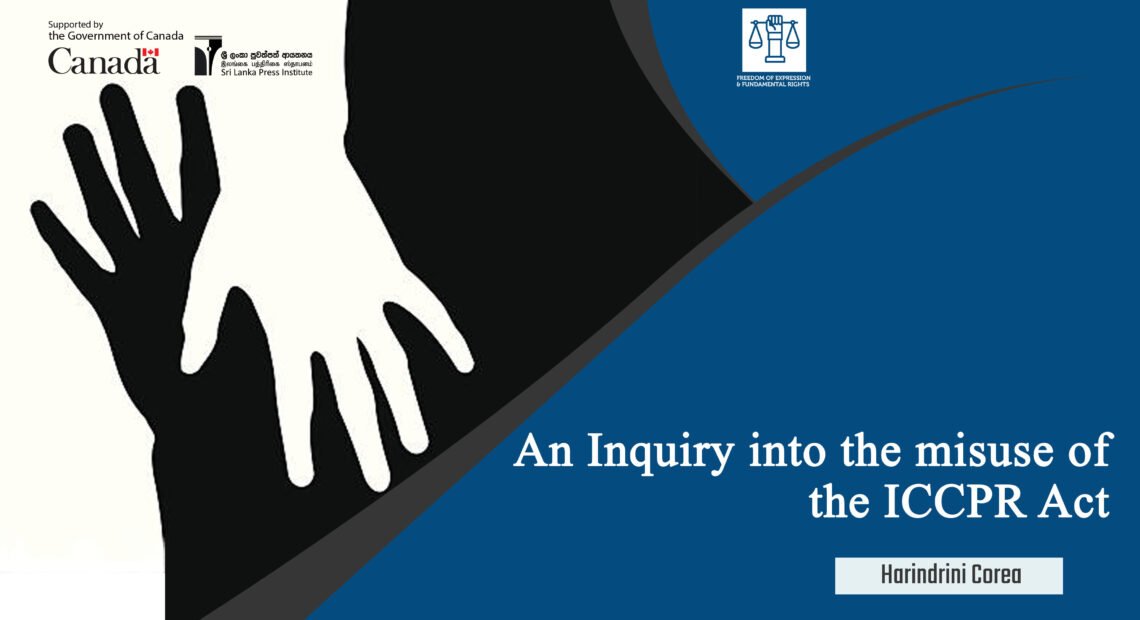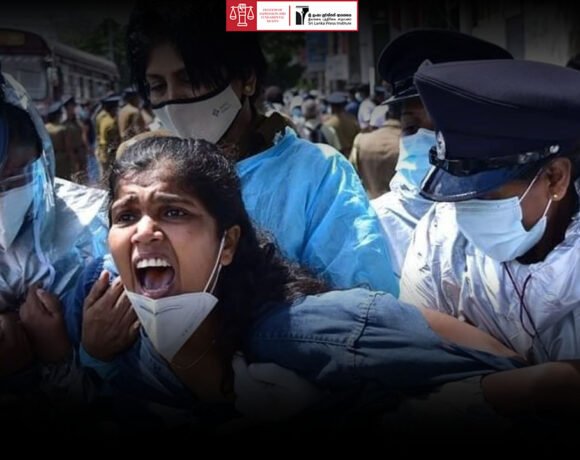
An Inquiry into the misuse of the ICCPR Act
Harindrini Corea
The ICCPR Act
The International Covenant on Civil and Political Rights (ICCPR) was adopted by the General Assembly of the United Nations on 16th of December 1966 and entered into force on 23rd March 1976. Sri Lanka acceded to the ICCPR on 11th June 1980 and enacted a International Covenant on Civil and Political Rights Act No. 56 of 2007.
Article 20(2) of the ICCPR provides as follows:
“Any advocacy of national, racial or religious hatred that constitutes incitement to discrimination, hostility or violence shall be prohibited by law.”
State parties have an obligation under such provision of the ICCPR to prohibit hostility or violence that embodies national, racial or religious hatred.
Section 3(1) of the ICCPR Act provides as follows:
“No person shall propagate war or advocate national, racial or religious hatred that constitutes incitement to discrimination, hostility or violence.”
The ICCPR Act criminalises the propagation or advocacy of national, racial or religious hatred that constitutes incitement to discrimination, hostility or violence as a non-bailable offence which shall be convicted by the High Court and be punished with rigorous imprisonment for a maximum term of ten years.
Parliamentary debate on the ICCPR Act
During the second reading of the ICCPR Act on the 10th of October 2007, Hon. (Prof.) G.L. Peiris Minister of Export Development and International Trade, is reported as having said the following words in Parliament:
“It is the bounden duty of this Government, Sir, to ensure that before anybody else can claim any benefit or advantage from the principles contained in the ICCPR, that it is the people of the sovereign Republic of Sri Lanka who should be beneficiaries of these principles that receive expression in this international instrument”
Beneficiaries of Section 3(1) of the ICCPR Act and the interpretation of ‘incitement’
The purpose of Section 3(1) of the ICCPR Act in a diverse ethno-religious society such as Sri Lanka is to prevent the incitement of hatred and violence against all ethnic and religious groups in the advancement of human rights. There is a question over the interpretation of ‘incitement’; in what types of situations would there be an incitement of violence as a result of national, racial or religious hatred?
The arrests and criminal investigations into Shakthika Sathkumara for his short story ‘Ardha’ on life in a Buddhist temple and Ramzy Razeek with regard to a social media post that included the words ‘Ideological jihad’ under the ICCPR Act and the lack of arrest and/or convictions of key persons involved in the riots against Muslim communities in 2014 and 2018 reveals the different application of the ICCPR Act in the interpretation of circumstances that amount to an incitement of violence as a result of national, racial or religious hatred. The consequent misuse of the ICCPR Act violates the core purpose of such legislation and infringes on the right to freedom of thought, conscience and religion as expressed in Article 10 of the Sri Lankan Constitution.








